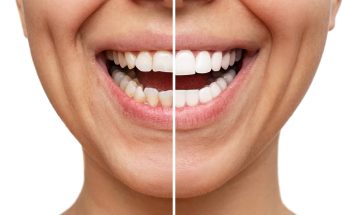The joints and muscles in your jaw may get inflamed or suffer damage that may limit your chewing ability. Over time, you may experience pain and discomfort in your jaw that worsens even at rest. All these signs could indicate Springfield TMJ, a condition affecting your jaw joints, thus hindering jaw movement. While the cause of TMJ may be difficult to determine, factors like jaw injury, arthritis, and genetics may lead to TMJ. The pain from TMJ may be temporary, and you can easily find relief with self-care practices. Read on to understand a few practices you can perform to relieve jaw pain.
Eat Soft Foods
You will need to prevent your jaw from overworking by chewing only soft foods like mashed potatoes, yogurt, soup, eggs, fish, and cooked fruits, among other soft dishes. Your doctor will ask you to avoid hard and crunchy foods like raw carrots and caramels, and not chew gum and ice. During your meals, you can cut your foods into tiny bites you can chew on and avoid large bites that may need you to open your mouth wide.
Use Cold Packs or Heat Pads
You can apply ice packs to your temple and the side of your face for up to ten minutes if you are experiencing sharp and intense pain. Your doctor may also recommend performing small stretching exercises for your jaw and after your exercise, use a warm towel for five minutes on your face. You can practice daily and apply the washcloth after every exercise. Your doctor can recommend a few exercises that will help you to stretch your jaw.
Take Medications
You will likely feel pain and experience swelling around your jaws. You can use OTC nonsteroidal anti-inflammatory drugs like ibuprofen, aspirin, and naproxen to help with such symptoms. Your doctor may also prescribe high doses of NSAIDs and, pain relievers, muscle relaxants for grinding and clenching at night. Additionally, you may need small doses of anti-anxiety medications to reduce the stress that could worsen your TMJ symptoms.
Go for Corrective Dental Treatments
A missing tooth may cause biting problems and alignment issues that may lead to TMJ. Therefore, consider replacing missing teeth using restorative procedures like crowns, bridges, and braces to correct misalignment.
Wear a Night Guard or Splints
Your doctor may recommend wearing night guards and splints over your upper and lower teeth. Such mouthpieces stabilize your teeth when your upper and lower jaws come into contact during closure. Additionally, mouth guards will move your jaw to a proper position while correcting your bite issues.
Avoid Extreme Jaw Movements
You must avoid activities that require you to open your jaws wide. Minimize yawning and chewing, and try keeping your teeth slightly apart to relieve pressure on your jaw. Avoid resting your chin on your hand and practice good posture to reduce pain.
On each side of your face, you have a temporomandibular joint that connects your skull to your lower jawbone and helps you speak and chew. You can develop a disorder in your TMJ when muscles and joints around the joints get irritated or inflamed. TMJ disorders may cause mild to severe pain and symptoms, including headaches, neck pain, difficulty opening your mouth wide, and difficulty chewing. Therefore, your source of relief will be to visit your doctor, who may recommend conservative treatment first until you can find desired relief.+




